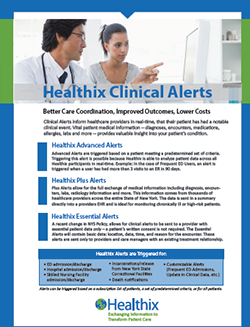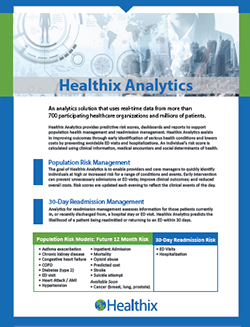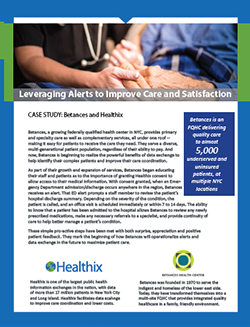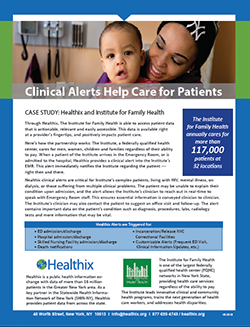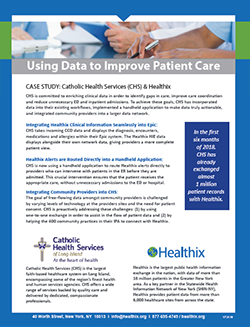A recent change in NYS Policy, allows for clinical alerts to be sent to a provider with essential patient data only – a patient’s written consent is not required. The Essential Alerts will contain basic data: location, date, time, and reason for the encounter. These alerts are sent only to providers and care managers with an existing treatment relationship.
Read more »

